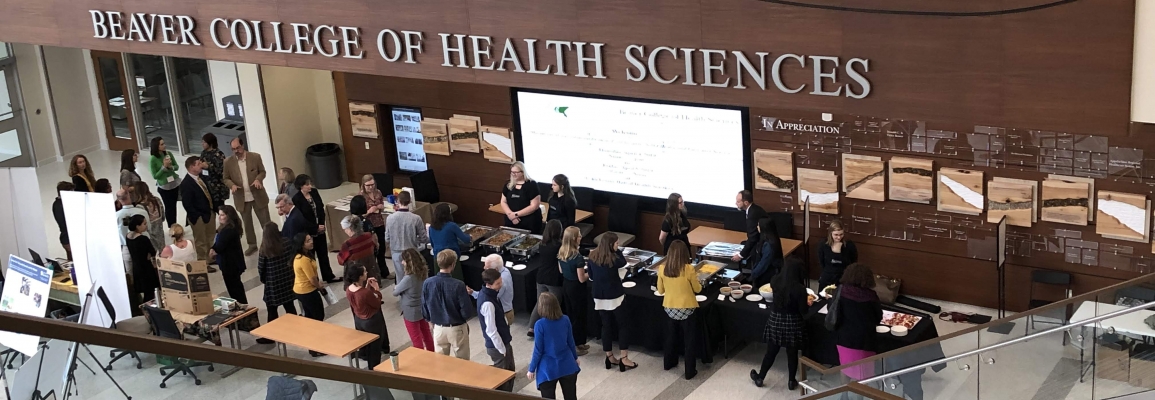The Department of Nutrition and Health Care Management at Appalachian State University has several bachelor and master's degrees that will prepare you for careers across many sectors of the nutrition and wellness industry.
Bachelor of Science - Dietetics Concentration
Our Bachelor of Science in Nutrition in Foods with a concentration in Dietetics meets the requirements for students to earn a verification statement and apply for graduate programs with supervised practice dietetic internships. This program is also designed to fulfill all knowledge requirements as stated in the Accreditation Council for Education in Nutrition and Dietetics (ACEND) eligibility requirements and accreditation standards for DPD programs. Learn more.
Bachelor of Science - Food Systems Concentration
The Bachelor of Science in Nutrition and Foods with a concentration in Food Systems is ideal if you enjoy planning or preparing food, developing new food products or managing the business aspects of food service. Learn more.
Bachelor of Science - Nutrition and Wellness
If you are interested in having a broad-based degree in nutrition but do not necessarily plan to become a registered dietitian, the Bachelor of Science in Nutrition and Foods with a concentration in Nutrition and Wellness prepares you for careers within community/public health nutrition, government health agencies, non-profit agencies, food systems and food security organizations, environmental education and other community health programs. Learn more.
Master of Science - Dietetic
If you are looking for a career in a variety of health- and wellness-related fields, a Master of Science in Nutrition from App State can help you understand the science behind nutrition and be able to translate that science to others. This combined program includes a Master of Science degree and a Dietetic Internship accredited by ACEND. Learn more.
Master of Science - Public Health Nutrition
Learn to lead, promote, develop, implement and evaluate programs and policies that drive optimal nutrition and well-being with App State's Master of Science in Nutrition with a concentration in either Public Health Nutrition or Public Health Nutrition with Dietetics. Learn more.
Minor in Nutrition and Foods
If you are an undergraduate student interested in nutrition and foods, but may not be ready to major in it, you may earn a minor in the field that will give you options to explore the field no matter where your career takes you. Learn more.




